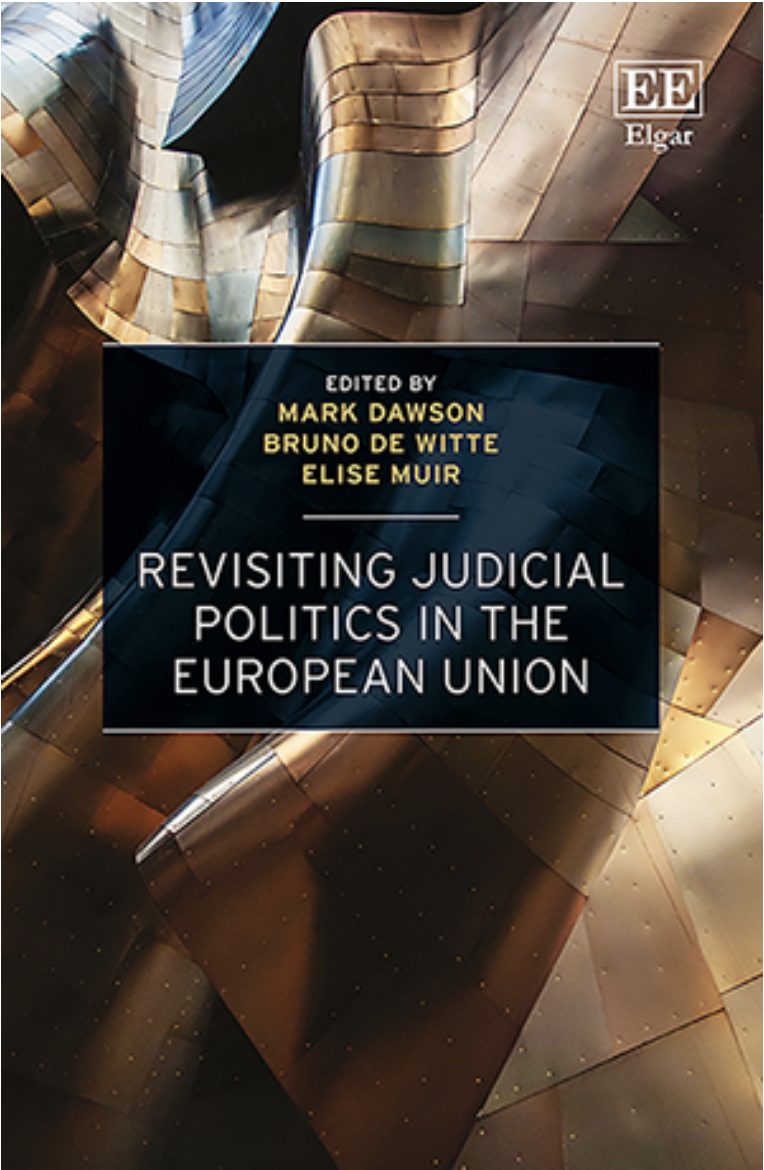‘Revisiting Judicial Politics’: MCEL Members Explore Law-Politics Interactions in Recently Published Book

How do law and politics interact in the EU constitutional system? How does the Court of Justice manage that interaction, and what is its broader political role? These are some of the questions discussed in the recently published book Revisiting Judicial Politics (edited by Mark Dawson, Bruno De Witte and Elise Muir, Edward Elgar 2024), which contains several contributions from MCEL members. Ranging from fundamental rights, asylum and migration law, to the law and politics of the internal market and more institutional perspectives, the book reflects the many facets of entanglement between the political and the legal in the European Union.
Rarely has the political role of the European judiciary been as evident as in the recent rule of law crisis, as MCEL’s Matteo Bonelli and Monica Claes analyse. The Court took action to protect the core political values of the Union, but its authority and competences were repeatedly challenged by several courts and actors at the national level. In trying to protect the rule of law and guard judicial independence, the Court has then used judicial creativity and often been strategic and political.
With science as a resource for political decision-making as important as in the European Union, the perspective broadens towards a triangular of law, politics, and science. Confronted with issues regularly complex and often uncertain, the EU judiciary must find ways providing effective legal protection without being able to fully review the area of genuine scientific questions. In their chapter, MCEL's Luca Knuth and Ellen Vos follow the case law of the European Courts through more than two decades and their search for a balance between the risk of boundless deference and that of Courts becoming 'super-experts'.
With its decisions, the Court of Justice also shapes the paths and modes of European Integration. Bruno De Witte's chapter focuses on the ambivalence that emerges from the case law. The Court, on the one hand, has traditionally been keen to limit Member States’ capability to derogate where EU law provides for common rules. On the other, it takes a more gracious position where not an individual Member State seeks derogation, but several Member States seek to explore alternate routes of ‘differentiated integration’. Such ambivalence, as Bruno De Witte suggests, reflects and is based on the Court’s understanding of the objective of European integration.
Jointly with Eleanor Spaventa, MCEL member Fulvia Ristuccia illuminates another law-politics entanglement: EU judges turning towards academia. Against the backdrop of a close examination of the phenomenon, the chapter engages with its legal implications. Whilst providing valuable scholarly insights, judges who engage in scholarly writing could also put the perception of independence of the EU judiciary at risk or undermine the collegiality of the Court. In examining the specificities of the CJEU’s position, as a more challenged and visible court than its national counterparts, the chapter tests EU law’s safeguards against those risks and offers a nuanced analysis accounting of the benefits and downsides associated with Judges’ academic endeavours.
The book builds on a previous project on 'Judicial activism at the European Court of Justice' from 2012 and results from the CIVICA funded project 'Contesting the Court: Re-visiting Judicial Politics in the European Union', which included a conference in June 2022 under the same title at the European University Institute.